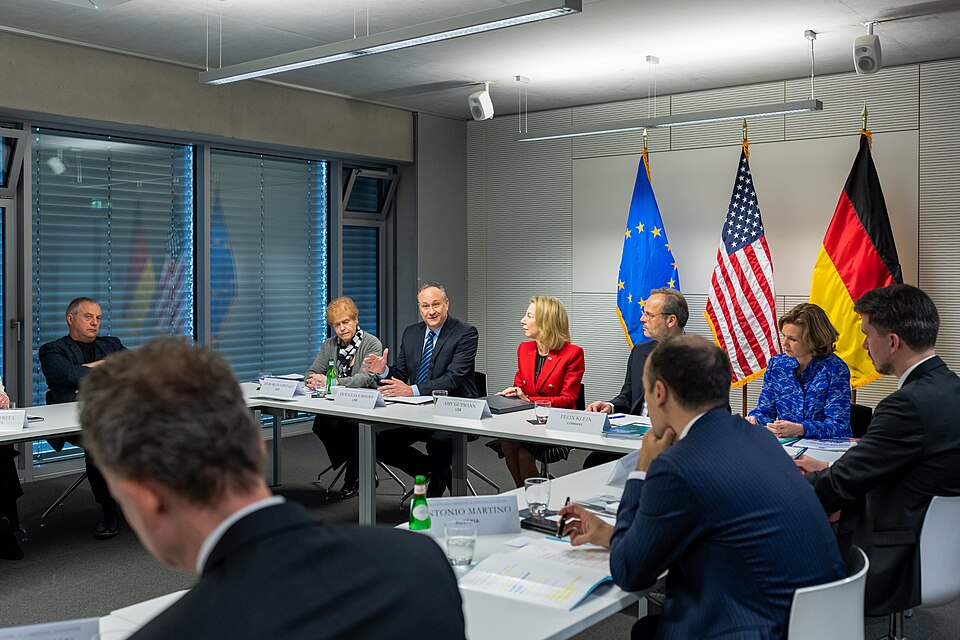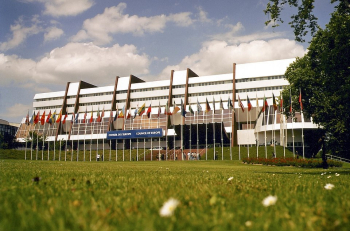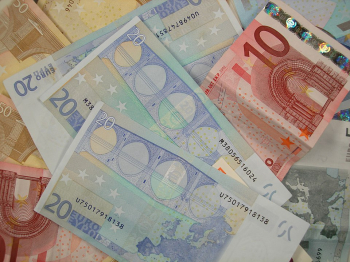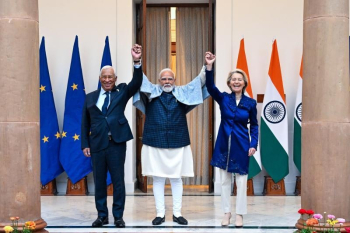
Germany’s top official charged with combating antisemitism is calling for a ban on pro-Palestinian slogans such as “From the river to the sea,” reigniting a national debate that sits
at the intersection of Germany’s historical obligations to Israel and its commitment to free expression.
Felix Klein, who has served as the Federal Government Commissioner for Jewish Life in Germany and the Fight against Antisemitism since 2018, said the Hamas attack of Oct. 7, 2023, fundamentally altered the context in which such chants are used. Speaking to “Haaretz”, Klein argued that slogans which could be construed as calling for Israel’s destruction should no longer be legally permissible.
“Before Oct. 7, you could have said that ‘From the river to the sea’ doesn’t necessarily mean kicking Israelis off the land, and I could accept that,” Klein said. “But since then, Israel has really been facing existential threats, and unfortunately, it has become necessary here to limit freedom of speech in this regard.”
Klein said his proposal has the backing of Interior Minister Alexander Dobrindt and is currently under review by the Justice Ministry. He added that he believes the measure should move forward even if it ultimately faces legal challenges on free-speech grounds.
A shift in Germany’s postwar doctrine
The Oct. 7 attacks and the devastating Israel–Hamas war that followed unsettled long-standing tenets of Germany’s political identity. The conflict led to a surge in both antisemitic and Islamophobic incidents and sharpened public debate around the country’s self-declared responsibility to protect Israel—an idea often described as Germany’s “Staatsräson”—versus its democratic principles.
Legal limits on pro-Palestinian expression have already proven murky. Courts currently rule on whether the chant “From the river to the sea, Palestine will be free” constitutes political speech or support for terrorism. In one prominent case, German-Iranian activist Ava Moayeri was convicted in August 2024 for leading the chant days after the Hamas attack.
After Oct. 7, city authorities imposed sweeping bans on pro-Palestinian protests. Berlin schools prohibited students from wearing keffiyehs and displaying slogans like “Free Palestine.” Jewish and Israeli activists were also swept up in the crackdown: police arrested a woman carrying a sign reading, “As a Jew and Israeli: Stop the genocide in Gaza,” and blocked a demonstration by “Jewish Berliners Against Violence in the Middle East,” citing fears of unrest.
Earlier this year, immigration officials ordered the deportation of several foreign nationals over their alleged involvement in pro-Palestinian demonstrations. Three of the orders invoked Germany’s “Staatsräson”, despite the fact that the concept has no standing in German constitutional law. “It’s completely irrelevant,” attorney Alexander Gorski told the Jewish Telegraphic Agency. “It’s not in the Basic Law.”
Rising discrimination concerns
The political climate has also grown more hostile for Jews and Israelis. A shop in the northern city of Flensburg displayed a sign declaring “Jews are banned here,” a case that clearly violates Germany’s anti-discrimination statute. But a restaurant in Fürth posting “We no longer accept Israelis in our establishment” did not, according to the federal anti-discrimination commissioner, because the law does not protect against discrimination based on nationality.
Klein said he has pushed for legal reforms to close that gap and extend protections to Israelis and other foreign nationals.
A long career shaping Antisemitism policy
Before assuming his current role, Klein served as the Foreign Office’s liaison to global Jewish organizations. In that position he helped craft the International Holocaust Remembrance Alliance’s working definition of antisemitism—an influential but controversial framework that critics say conflates some criticism of Israel with antisemitism.
Klein maintains that the overlap is substantial. “I think in most cases it is — it’s just a disguised form of antisemitism,” he said. “When people say they’re anti-Israel, what they really mean is Jews.” Photo by The White House, Wikimedia commons.

















